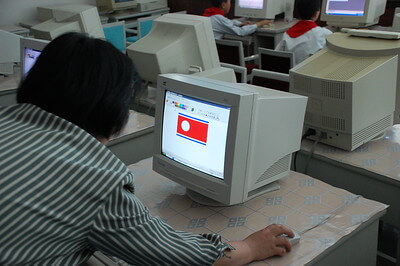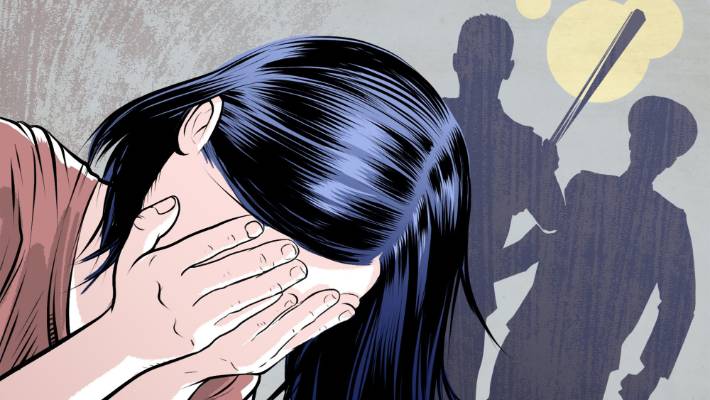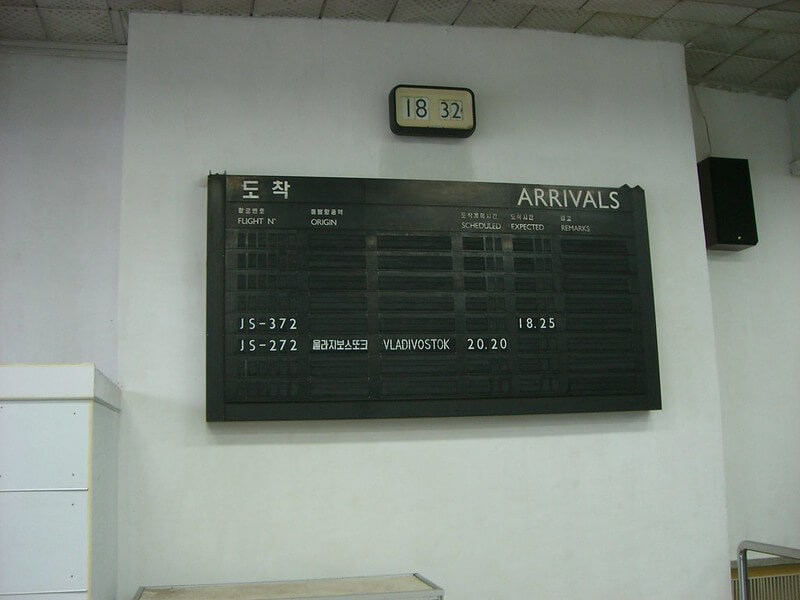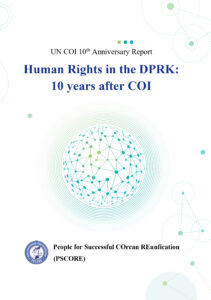North Korean Human rights
Human Rights in the DPRK: 10 years after COI
Human Rights in the DPRK: 10 years after COI
Infrigement of Freedom of Tought, Expression and Religion
“Punishment has become stronger when watching foreign broadcasts. The number of controlling agencies, commerce and patrols has increased. At first, it was only 109 members, but now it is also handled by all those who inspect accommodation. It was previously handed over to 109 and could not be handled.” – Hyo-sung Joo

Discrimination
“There is a wide gap between the powerful and the powerless within society. Apart from discrimination, I believe the ordinary people of North Korea are slaves to the party.”- Jin Kang
Discrimination in North Korea is based on the ‘songbun’ classification system, which categorizes individuals based on their family background, social status, occupation, and political ideology. Discrimination based on ‘songbun’ is prevalent, with individuals facing discrimination in access to education, military service, rations, and employment opportunities. However, origin-based discrimination decreased as wealth-based discrimination emerged. It also discusses two other issues in North Korea – regional discrimination and discrimination against persons with disabilities. Discrimination in the distribution of rations, power supply, and mobility persists, while discrimination against persons with disabilities is evident in the lack of support and social benefits, lack of equality in education, and negative public perception.

Infrigement of Freedom of Movement and Residence
“Nothing has changed in policy, but daily life has changed. There was a time when a friend who went to another area for more than a year did not return. There is nothing that can’t be done with bribes, so the law is not very powerful” – Yuna Kim
North Korea is also violating the freedom of movement and residence rights of its citizens. The North Korean authorities restrict movement between provinces with a travel permit system and prohibit people from moving outside their area of residency. In principle, people need certificates to move, but it is possible to pay a bribe to bypass this system. The movement control was eased before COVID-19, but the pandemic has worsened the situation, with the movement of residents significantly dampened. The economic strain has had a significant impact on residents. Prices have inflated substantially around the border between North Korea and China, and residents who live on a daily income have suffered from starvation. Furthermore, there have been cases of forced deportation of impure forces stipulated by the authorities.

Infrigement of Rights to Food and Related Rights to Life
“More and more people are starving to death. My uncle also died from COVID. It is said that there are cases of suicide because life is hopeless. A woman in her 70s committed suicide after taking medicine at night, and I heard that the head of the People’s Party (in charge) and the secretary of the city party’s organization are under review by the Central Party.” – Eun-duk Kim
The report also discusses the infringement of the right to food and related rights to life in North Korea. The right to food is recognized by international law and guaranteed by individual countries’ obligations. The North Korean government has failed to cooperate with the international community to resolve the food rights issues, resulting in major food crises, particularly among vulnerable groups such as children, the disabled, the elderly, and women. The food distribution system discriminates against residents based on class, region, and occupation. People starve to death due to the North Korean regime’s intentional neglect, and the vicious cycle of rural collapse and food shortages seems to be deepening. The problem persists due to the government’s policy of maintaining the system through an unequal distribution structure.

Arbitrary Detention, Torture, Execution and Political Prison Camps
“Whoever handles the case determines the gravity of the crime. North Korean officers of the law side with the judges. Even if one gets a lawyer, the lawyer will not defend their best interests. When I was arrested in 2017, I did not have a lawyer. The ability to hire an attorney when one finds oneself in an unjust situation is power in itself.” – Seon-joo Cho
The prevalent torture and arbitrary detention of political prisoners in North Korea violates the basic principles of human rights as per the International Covenant on Civil and Political Rights. Despite having its own regulations on torture and inhumane treatment, North Korea fails to comply with the principles of life and bodily autonomy. Punishment without trial and corruption in judicial proceedings are rampant. Although the level of violence has decreased, cases of torture and human rights violations continue to occur, and public execution is prevalent. The article concludes with an account of personal defamation and sexual harassment in rallying stations for repatriated defectors.
Status of the number of prisoners in North Korea’s political prison camps
| Camp Name | Location | No. of Prisoners | ||
|---|---|---|---|---|
| March 2020 | July 2021 | June 2022 | ||
| Camp No. 14 | Gaechon, South Pyongan Province | 43,000 | 43,000 | 36,800 |
| Camp No. 15 | Yodok, South Hamgyon Province | 55,000 | 56,800 | 42,900 |
| Camp No. 16 | Hwasong, North Hamgyong Province | 24,000 | 24,000 | 28,700 |
| Camp No. 17 | Gaechon, South Pyongan Province | 21,000 | 20,800 | 41,200 |
| Camp No. 18 | Pukchang, South Pyongan Province | 26,000 | 25,800 | 20,200 |
| Camp No. 25 | Chongjin, North Hamgyong Province | 40,000 | 41,000 | 36,000 |
| Camp Sungho-ri | Sungho, North Hwanghae Province | 21,000 | 0 | |
| Camp Pyongsan | Pyongsan North Hwanghae Province | Unknown | Unknown | |
| Total | 209,000 | 232,400 | 205,800 | |
Kidnapping and Forced Missing Foreigners
Others, Labor Axploitation
“The forced labor was severe. They weren’t treating us as a human being, rather like an animal.”- Gil-soon Shim
The prevalent torture and arbitrary detention of political prisoners in North Korea violates the basic principles of human rights as per the International Covenant on Civil and Political Rights. Despite having its own regulations on torture and inhumane treatment, North Korea fails to comply with the principles of life and bodily autonomy. Punishment without trial and corruption in judicial proceedings are rampant. Although the level of violence has decreased, cases of torture and human rights violations continue to occur, and public execution is prevalent. The article concludes with an account of personal defamation and sexual harassment in rallying stations for repatriated defectors.

